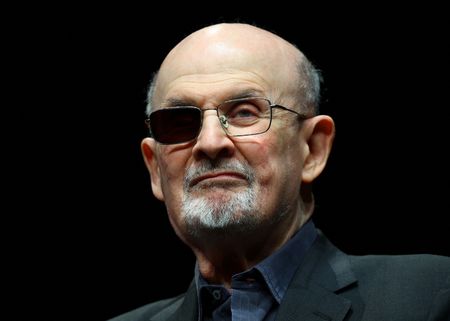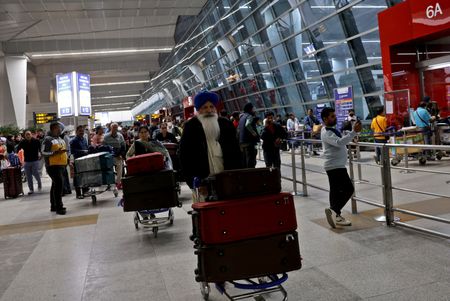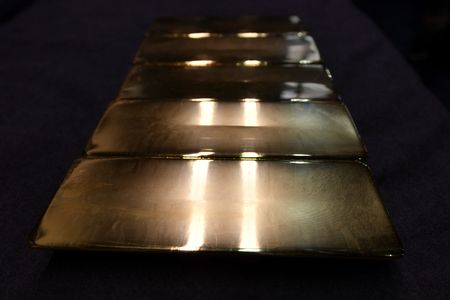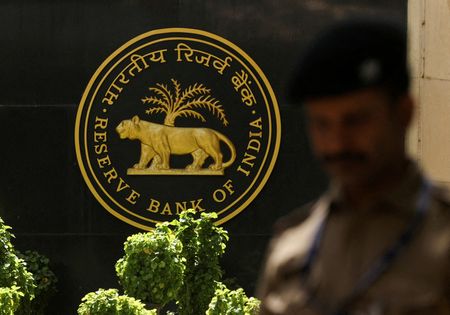(Reuters) – The man who stabbed and partially blinded novelist Salman Rushdie onstage at a Western New York arts institute in 2022 was sentenced to 25 years in prison on Friday for an attack that also wounded a second man, the district attorney said.
Rushdie, 77, has faced death threats since the 1988 publication of his novel “The Satanic Verses,” which Ayatollah Ruhollah Khomeini, then Iran’s supreme leader, denounced as blasphemous, leading to a call for Rushdie’s death, an edict known as a fatwa.
Hadi Matar, 27, a U.S. citizen from Fairview, New Jersey, was found guilty of attacking the author in the Chautauqua County Court in Mayville, New York, in February. He faced a maximum sentence of 25 years in prison on the attempted murder charge.
Video that captured the assault shows Matar rushing the Chautauqua Institution’s stage as Rushdie was being introduced to the audience for a talk about keeping writers safe from harm. Some of the video was shown to the jury during the seven days of testimony.
“He’s traumatized. He has nightmares about what he experienced,” Chautauqua County District Attorney Jason Schmidt said after the sentencing hearing, referring to what Rushdie suffered.
“Obviously this is a major setback for an individual that was starting to emerge in his very later years of life into society after going into hiding after the fatwa.”
Also hurt in the attack was Henry Reese, co-founder of Pittsburgh’s City of Asylum, a nonprofit that helps exiled writers. He was conducting the talk with Rushdie that morning.
Schmidt said Matar was sentenced to 25 years in prison for the second degree attempted murder charge stemming from the attack against Rushdie and seven years for a second degree assault charged for the stabbing of Reese. The sentences will run concurrently.
Rushdie, an atheist born into a Muslim Kashmiri family in India, was stabbed with a knife multiple times in the head, neck, torso and left hand. The attack blinded his right eye and damaged his liver and intestines, requiring emergency surgery and months of recovery.
Matar did not testify at his trial. His defense lawyers told jurors that the prosecutors had failed to prove beyond reasonable doubt the necessary criminal intent to kill needed for a conviction of attempted murder, and argued that he should have been charged with assault.
Matar’s attorney Nathaniel Barone said his client will file an appeal.
“I know if he had the opportunity, he would not be sitting where he’s sitting today. And if he could change things, he would,” Barone said.
Matar also faces federal charges brought by prosecutors in the U.S. attorney’s office in Western New York, accusing him of attempting to murder Rushdie as an act of terrorism. Prosecutors accuse him of providing material support to Lebanon’s militant Hezbollah group, which the U.S. has designated as a terrorist organization.
Matar is due to face those charges at a separate trial in Buffalo.
(Reporting by Brendan O’Brien in Chicago; Editing by Frank McGurty and Frances Kerry)








